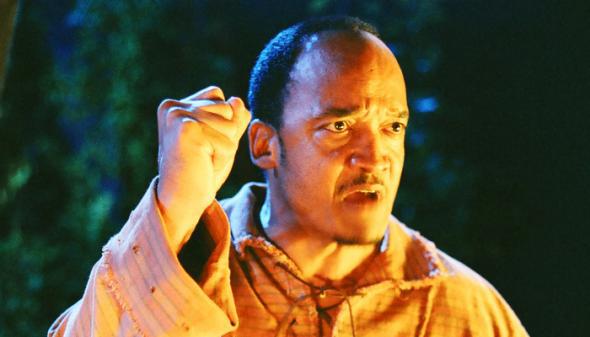The lackluster box office for Nate Parker’s The Birth of a Nation has prompted a wave of postmortem analyses and, in some corners, recrimination. Parker himself, who according to the Hollywood Reporter ignored the advice of both PR experts and Oprah herself on how to handle the resurfacing of allegations that he and his Birth co-screenwriter raped a woman in 1999, has taken the brunt of the blame, but there’s been plenty to go around, from the critics who overhyped the film in January to, in a novel twist suggested by journalist Roland Martin, black women, who he says have avoided the film because Nate Parker’s wife is white. (That last bit of finger-pointing didn’t go over too well.)
But the history of Nat Turner’s revolt, which is the subject of Parker’s movie, has always been a contentious, nearly intractable one. That’s certainly the conclusion reached by Charles Burnett’s 2004 documentary Nat Turner: A Troublesome Property, which examines the way Turner’s story has been (ab)used in the service of often incompatible perspectives throughout history. (The movie is available for streaming through Amazon Prime and for purchase from California Newsreel.) Exploring everything from The Confessions of Nat Turner, which purports to be Turner’s own first-person account as told to lawyer Thomas Gray, to William Styron’s Pulitzer Prize–winning 1967 novel of the same name, Burnett both dramatizes and deconstructs how Turner has been depicted by largely white authors and whether the scant historical record of his existence that is not concerned with bloodshed allows us to form a picture of him at all. “There is no Nat Turner back there, whole, to be retrieved,” Henry Louis Gates Jr. says in one of the film’s dozens of interviews. “You would have to go and create Nat Turner.”
Creating Nat Turner is what A Troublesome Property does, but it doesn’t stop at making just one of him. For every version of Turner, from bloodthirsty angel of vengeance to righteous revolutionary, Burnett casts a different actor and shoots in a different style. Carl Lumbly plays Gray’s Turner, a sober figure who discourses elegantly from the shadows of a jail cell. Tommy Hicks incarnates him within the framework of a 1935 production by black playwright Randolph Edmonds, speaking in a thick dialect. (Sample line, taken from the film’s transcript: “Ef dey buy and sell me, whip me lak dawgs, and feed me dere leavin’s, how can Ah be nothin’ else but a beast?”) We hear the versions of Turner who lived through stories told from one generation to the next but were never committed to print, from the account of him offered by a former slave whose words were taken down in 1937 to another version from the late actor and activist Ossie Davis, who recalls how as a child he played Nat Turner the way others might have played cowboys and Indians: “We would create among ourselves, we boys, in particular, our own version of what Nat did and what we would’ve done if we had been old Nat and how that would’ve satisfied us greatly.”
Unlike Parker’s movie, A Troublesome Property doesn’t shy away from the less savory aspects of Turner’s rebellion. In the first scene, two of Turner’s followers kill a white couple, leave their house, then go back for their infant child. But Bruce Turner, one of Nat’s descendants, makes the case that the only way for the rebellion to be a success was “to make the price so high that those who was practicing slavery would eventually sue for peace.” “A revolution is either thorough or it’s doomed,” says historian Eugene Genovese. “Real revolutionaries know that, which is why they have to proceed in cold blood.”
But in others’ telling, Turner is simply a madman crazed with lust and rage. “Everyone possesses Nat Turner,” says Styron, who controversially made an invented romantic relationship between Turner and a young white woman the spine of his novel, playing into age-old stereotypes about black male sexuality that Burnett illustrates with clips from D.W. Griffith’s Birth of a Nation. A Troublesome Property’s title underlines the way that after Turner’s death, as the narration puts it, “his words became the property of others, as his body was during his life.” Parker’s movie can be seen as, among other things, a fulfillment of Gates’ suggestion: If you don’t like Styron’s Nat Turner, write your own.
Burnett, whose other films include To Sleep With Anger, Killer of Sheep, and The Glass Shield, is one of the greatest and most thoughtful American filmmakers—Moonlight’s Barry Jenkins has cited him as a key inspiration—but the 13-year-old A Troublesome Property is, staggeringly, his last movie to receive distribution in this country. (He’s completed one theatrical feature since, 2007’s Namibia: The Struggle for Liberation, but it wasn’t screened at major festivals and is only available on home video as a German import.) A Troublesome Property shows that his voice is needed as much now as ever, and if it’s not exactly a corrective to Parker’s movie, it’s an essential accompaniment—or, for those with qualms about supporting Nate Parker, a more than adequate substitution.
